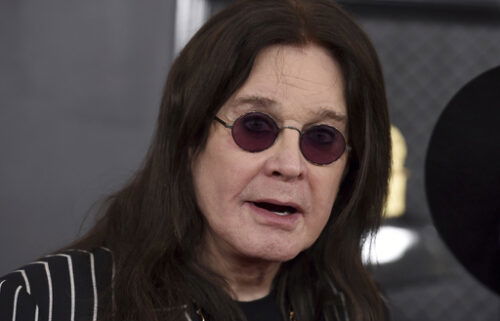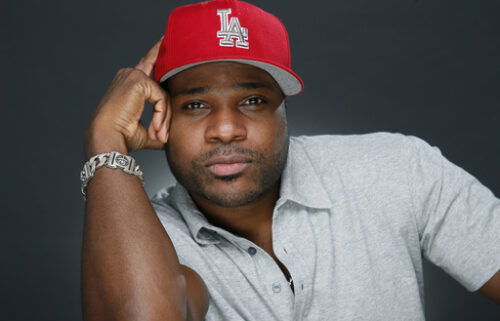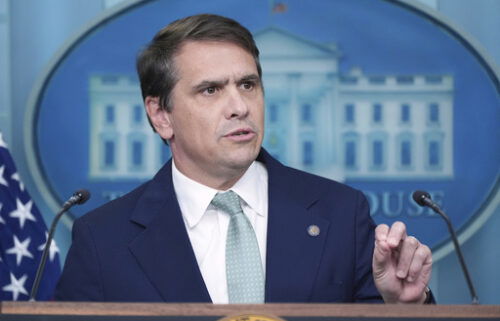Older students might be one answer as Missouri colleges struggle to fill seats

By St. Louis Post-Dispatch via My Courier-Tribune
One regret has needled David Morris for half a century.
The 74-year-old, a military veteran and father of six, has owned a grocery store, sold real estate, and worked on an assembly line, at a post office and as a lab technician.
But Morris, of Black Jack, never finished college.
Finally, late last spring, he put in a call to Harris-Stowe State University.
“I should have done this a long time ago,” he said.
In Missouri and across the country, the number of people who start college but never finish dwarfs that of those who graduate, a problem that has mushroomed in the wake of the COVID-19 pandemic.
About two-thirds of freshmen will not earn a bachelor’s degree in four years, according to Complete College America, a national advocacy organization.
“Stop-outs” are more likely to be saddled with debt and default on loans. They might miss out on career goals — Morris dreamed of being a teacher — and economic gains.
Schools lose tuition dollars and take a hit on their retention rates, which can influence the enrollment decisions of prospective students.
College attendance has been on a slide in the U.S. since peaking in 2010. There are fewer young adults overall, and fewer of them are choosing higher education. That “demographic cliff” has left schools, especially smaller ones, searching for other ways to fill seats.
The reservoir of Americans with some college credits but no degree continues to expand, from 36 million in 2019 to 40.4 million in 2022, according to the National Student Clearinghouse.
Risk factors for dropping out include part-time attendance, being the first one in the family to attend college and coming from a low-income household, said Charles Ansell of Complete College America.
“Life gets in the way,” he said. “Finances get tight. You’re overtired, demoralized. You drop out.”
Reengaging with former students for whom a diploma is just beyond their grasp has multiple benefits, Ansell said. For schools, it generates revenue and improves metrics. For students, it opens up possibilities and reverses old missteps.
“It makes all the sense in the world,” said Ansell. “We could be doing better.”
Higher-education programs that directly target later-stage stop-outs, though still uncommon, are “proliferating,” he said.
Win-win for all
Finding them is one challenge; convincing them to invest their time and money is another. The rate of return can be tiny, but it’s worth an attempt, said Wendell Williams, an associate vice chancellor at Southern Illinois University Carbondale. In the past decade, 10,000 one-time Salukis have stopped out with more than 90 credit hours to their names.
“Somewhere in that 10,000 might be the cure for cancer, a way to control hunger, a solution for climate change,” said Williams.
Intergenerational teasing pushed John Dames of Soulard back to the University of Missouri-Columbia three years ago. His oldest daughter was a student there, and “I was determined to beat her to graduation,” he said.
Dames, 53, was supposed to graduate in 1992, but his original major, Soviet studies, went out the window a semester before that, when the Soviet Union dissolved.
“It was a weird time,” said Dames. “I didn’t know what to do with that degree.”
He checked out, leaving one class incomplete, and jumped into a career in graphic design and software development.
In 2020, Mizzou unveiled a rebranded college-completion program, the Finish Line. COVID provided an unexpected benefit: More classes were available online and more students were willing to learn that way.
The Finish Line’s new focus was on ex-Tigers with more than a hundred hours, like Dames.
“It’s a small number in the scheme of things,” said Rachael Orr, the program’s director.
But it’s a motivated set of students. The end is already in sight. Since the initiative began, almost 200 people have completed their degree.
Dames aced the one class he needed, the History of Strategic Warfare. And he likes to remind his family that he became a Mizzou alum before his daughter did.
“I was glad to have won our inside joke,” he said.
At Harris-Stowe’s graduation last month, president LaTonia Collins Smith highlighted “extraordinary stories” from among the class of 128.
“It’s never too late to fulfill one’s academic aspirations,” she told the crowd gathered at the Henry Givens administration building.




